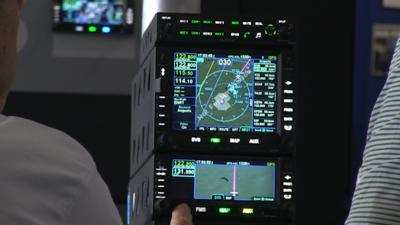Mon, Jul 08, 2019
Agency Assures Pilots That They Will Not Be Responsible For Circumstances Beyond Their Control
A document published in the Federal Register by the Department of Transportation establishes the FAA's policy on performance requirements for certain operations of aircraft with Automatic Dependent Surveillance-Broadcast (ADS-B) Out equipment in ADS-B airspace after January 1, 2020.

Under the circumstances identified in the policy, the FAA is providing assurance to operators that it will not consider degradation in Global Positioning System performance due to conditions outside the operator's control that results in an operation falling below ADS-B rule requirements to constitute non-compliance, provided the operator has exercised appropriate due diligence prior to conducting an operation.
According to the published document, there are circumstances outside of an operator's control that may result in a temporary degradation of GPS performance and an apparent violation Federal Aviation Regulations. Those circumstances are discussed in detail in the document linked below.
An operator may exercise due diligence in performing a preflight availability prediction for its intended route of flight but experience rerouting by ATC after obtaining an initial ATC route clearance, which may cause an unanticipated degradation of performance. Additionally, an operator may encounter actual GPS interference on its intended path of flight, which would affect the ability of an aircraft to meet the performance requirements of § 91.227. Lastly, an operator may not be able to complete a preflight availability prediction for its intended route of flight due to the FAA's SAPT being out of service.
As is explained in the document, the FAA recognizes that these situations are outside of the operator's control. Therefore, the FAA will not consider these events to constitute noncompliance with § 91.227 due to the circumstances discussed in this document to the extent such an application would impose a standard of conduct wholly outside the operator's control.
(Source: Federal Register. Image from file)
More News
DETRESFA (Distress Phrase) The code word used to designate an emergency phase wherein there is reasonable certainty that an aircraft and its occupants are threatened by grave and i>[...]
"General aviation is at the forefront of developing and introducing innovative technologies that will transform the entire aviation industry..." Source: Kyle Martin, Vice President>[...]
Direct Straight line flight between two navigational aids, fixes, points, or any combination thereof. When used by pilots in describing off-airway routes, points defining direct ro>[...]
Aero Linx: Women in Corporate Aviation Women in Corporate Aviation support individuals seeking career advancement and professional development in the business aviation industry. Me>[...]
“We would like to thank the many volunteers that help throughout the year to pull off the event, as well as the several reviewers, judges, and SURVICE staff that provide team>[...]
 ANN's Daily Aero-Term (04.26.24): DETRESFA (Distress Phrase)
ANN's Daily Aero-Term (04.26.24): DETRESFA (Distress Phrase) Aero-News: Quote of the Day (04.26.24)
Aero-News: Quote of the Day (04.26.24) ANN's Daily Aero-Term (04.27.24): Direct
ANN's Daily Aero-Term (04.27.24): Direct ANN's Daily Aero-Linx (04.27.24)
ANN's Daily Aero-Linx (04.27.24) Aero-News: Quote of the Day (04.27.24)
Aero-News: Quote of the Day (04.27.24)



